(This is an extension to this question, but my reputation is too low to comment or ask more questions on that topic...)
We work on bigquery, hence limited in importing packages or using other languages. And, as per the link above, js is a solution, but not what I'm looking for here. I implemented it in js, and it was too slow for our needs.
Suppose one of our columns is a string that look like this (array of json):
[{"location":[22.99902,66.000],"t":1},{"location":[55.32168,140.556],"t":2},{"location":[85.0002,20.0055],"t":3}]
I want to extract from the column the json for which "t":2
Where:
- some columns don't have elements "t":2
- Some columns have several elements "t":2
- The number of json elements in each string can change
- element "t":2 is not always in second position.
I don't know regexp well enough for this. We tried regexp_extract with this pattern: r'(\{.*?\"t\":2.*?\})')), but that doesn't work. It extracts everything that precedes "t":2, including the json for "t":2. We only want the json of element "t":2.
Could you advise a regexp pattern that would work?
EDIT:
I have a preference for a solution that gives me 1 match. Suppose I have this string:
[{"location":[22.99902,66.000],"t":1},{"location":[55.32168,140.556],"t":2},{"location":[55.33,141.785],"t":2}],
I would prefer receiving only 1 answer, the first one.
In that case perhaps regexp is less appropriate, but I'm really not sure?

